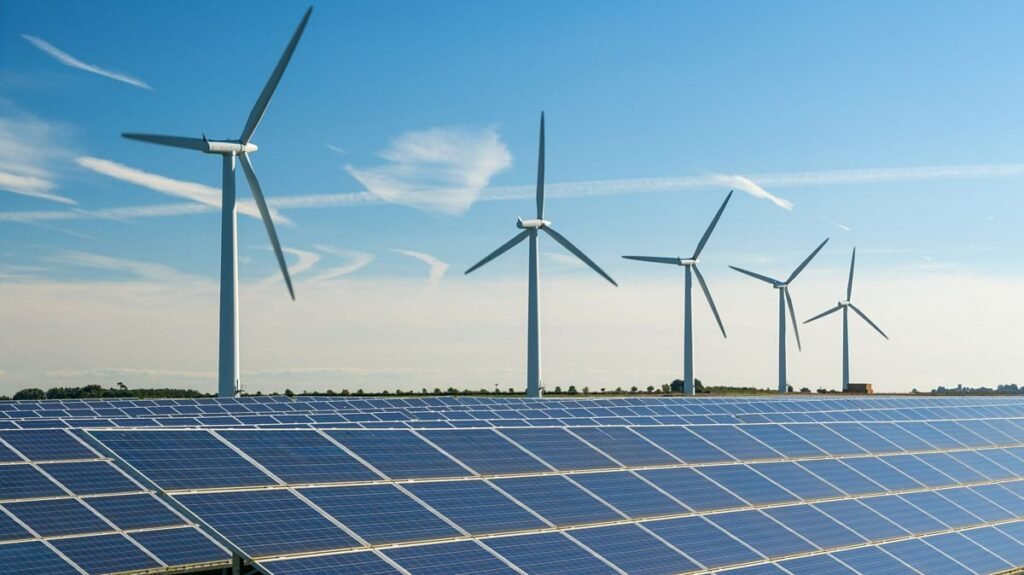De-Graft: Farming, or agriculture, is a massive industry in the UK. In fact, over 70% of land here is used for farming. And that ranges from growing crops, like vegetables and plants, to keeping animals big and small – like bees!
Farming is all about harvesting and using natural resources. And in this case it’s collecting honey from a bee hive.
Later locals Ethan and Aicha are going to be helping me plant some vegetables and learning a lot more about farming. But first, let’s zoom out.
We’re in Manchester, which is an urban environment. Farming typically happens in more rural environments across the UK. In places like County Antrim, Northern Ireland the rocky and hilly landscapes, which usually have less fertile soils, are best for farming livestock such as sheep. While in counties like Norfolk and Suffolk in the East of England there’s lots of flat and fertile land, which is good for growing crops like wheat.
Different regions are better suited for different types of farming because of the climate, soil, and topography (the shape of the land). There are three main types of farming: Arable farming, which means growing crops like vegetables and wheat. Pastoral farming, which means raising animals for things like meat, wool and dairy products. And mixed farming, which means growing crops and keeping animals.
In other countries farming can look quite different from farming in the UK, like growing rice in China or coffee farming in Central America.
Farming helps feed the population. Sometimes produce will be sold straight into shops or supermarkets, and sometimes crops will be processed or turned into something else first like potatoes into crisps, or wheat into flour. Intensive farming is when farming is done in a way to maximise the produce that is harvested, often by using fertilisers to boost the soil’s nutrients or pesticides to kill off insects that eat crops. Some people prefer organic farming, which means producing food without the use of chemicals.
I’ve met up with Manchester locals Ethan and Aicha to plant some vegetables at an urban rooftop farm.
So guys, when you walked in, what did you think of this place?
Aicha: I thought it was a bit nice because I’ve never seen a place like this before. I was thinking that it was pretty beautiful actually.
Ethan: Like a big huge garden, because of all the plants around here.
De-Graft: Yeah, it is like a big huge garden. And what are some of the things that you think could make farming a bit difficult?
Ethan: The rain because the soil can get all soggy.
Aicha: Finding the right places to dig.
De-Graft: Good suggestions guys. There are lots of factors that can affect farming such as the weather and soil type. Farming can involve using heavy machinery too, which can be hard work and costs a lot of money. But farming doesn’t have to be on massive plots of land with massive machines. But actually you have places like this called urban farms that you guys can get involved in.
Let’s hear from an expert. Jo is an urban farmer in Manchester – so what is an urban farm?
Jo: Urban farms allow people to support their local economy, to get in touch with their food and where it comes from and to shop seasonally. It’s all about growing produce in an environment, like a city centre, that is different to traditional countryside farming.
De-Graft: OK, time to compare… There are roughly 173,000 square kilometres of farmland in the UK – that’s an area nearly the same size as the whole of Austria, Switzerland and Slovakia combined!
Where’s the nearest farm near you? And what does it look like? Zoom in and take a look for yourself.
Right guys, I think it’s time for us to finally water our plants. Let’s go!

